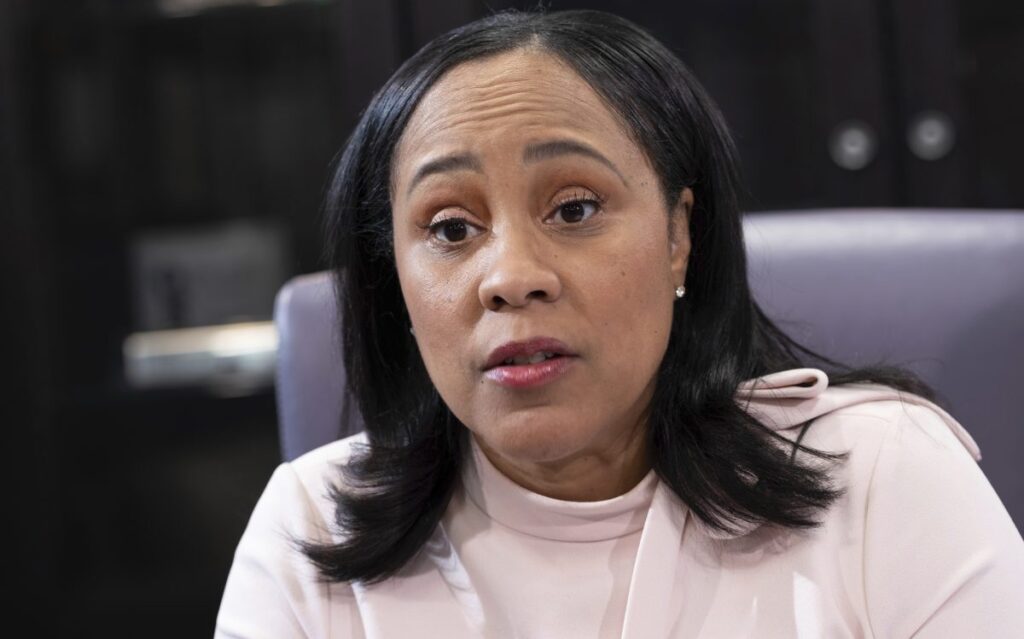Fulton County District Attorney Fani Willis, overseeing the Georgia election interference case involving former President Donald Trump, was notably absent from a Friday hearing held by a Georgia state Senate committee investigating her actions. According to ABC News, Willis has challenged the validity of the committee’s subpoenas, which her office has described as illegal.
Willis has taken legal steps to prevent the enforcement of the subpoena, while the Senate Special Committee on Investigations continues to examine her conduct, including allegations of a romantic relationship with Nathan Wade, the special prosecutor she appointed, and potential misuse of taxpayer funds. The Friday hearing was intended to include “sworn testimony” from Willis, but her attorney, former Georgia Governor Roy Barnes, told the Atlanta Journal-Constitution that Willis “will not appear until a judicial ruling on the validity of the subpoena” is issued on Thursday.
In Willis’ absence during the 90-minute session, the committee heard from two witnesses who testified that the panel has the legal authority to issue the subpoena and can compel the district attorney to testify if she refuses to appear voluntarily. Republican State Sen. Bill Cowsert, who chairs the committee, said at the start of the hearing, “we have subpoenaed Fani Willis to testify … she is defying her subpoena and not appearing.” He added, “But we will welcome her if she appears at some point during the meeting,” before proceeding with the hearing to address other issues and hear from different witnesses.
In an interview with Fox News, Cowsert explained that after Willis declined to testify voluntarily, the committee issued a subpoena. However, he noted that her legal team has indicated they do not plan to comply with the subpoena. “We think it’s unlikely that she will appear but disappointing that she considers herself above the law.” Prior to the hearing, he said: We do have the authority to investigate and to issue subpoenas to compel testimony and the production of documents, and if tested in court, that will be validated. She’ll be required to attend, and she’ll be required to produce certain requested documents. It may require a court order for her to obey them, but that’s where we’re headed.”
Last week, Fulton County Judge Rachel Krause denied a request to dismiss a lawsuit related to open records requests aimed at Willis and her office. However, Judge Krause granted a motion to exempt Willis from the lawsuit in her individual capacity, allowing her to remain involved in her official role as district attorney. The lawsuit, initiated by Ashleigh Merchant—who represents co-defendant Michael Roman in the case against former President Donald Trump and his associates—claims that the district attorney’s office did not provide requested documents in a timely manner, as mandated by the Georgia Open Records Act.
Adding to the case, Merchant has accused Willis of withholding records related to a media monitoring firm allegedly funded by taxpayer money. In response, Krause has scheduled an evidentiary hearing to determine the existence and extent of the requested documents, as reported by 11Alive. Attorneys also plan to subpoena individuals involved in handling the open records requests within Willis’s office to gather more comprehensive evidence. “The judge clearly agreed with the defense that the actions of Willis are a result of her poor judgment,” Merchant said earlier in the year.
Willis indicted former President Donald Trump and 18 others in a broad racketeering case, accusing them of attempting to overturn the 2020 presidential election results in Georgia. All the defendants, including Trump, have pleaded not guilty. Four of them have accepted plea deals and agreed to testify against the others. The Georgia Court of Appeals temporarily paused the election interference case in June, pending a decision on whether Willis can continue overseeing it. Oral arguments on this matter are scheduled for December 5, just one month after the presidential election.



